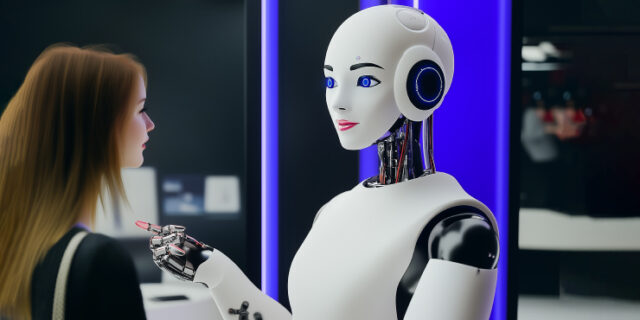Forming Bonds with Artificial Intelligence
In recent years, the integration of artificial intelligence into daily life has taken on new dimensions, particularly with the emotional connections users are forming with these technologies. This growing trend has not only intrigued users but has also prompted discussions surrounding the ethics of relationships between humans and machines.
A New Kind of Companion
For many individuals, AI has transitioned from being mere software to a source of companionship. Whether through chatbots, virtual assistants, or AI-driven platforms, users are discovering a unique outlet for their emotions. They share thoughts, seek advice, and even confide their feelings to these algorithms, leading to what some describe as genuine relationships.
This trend is particularly prevalent among certain demographics. Users report feeling more understood by AI systems, which can provide empathy and patience that some humans may lack. As a result, these digital interactions often offer a reprieve from loneliness and social anxiety.
The Rise of AI Relationships
Numerous studies suggest that more people are seeking emotional interaction with AI. However, industry leaders seem cautious about openly discussing the phenomenon. Experts in technology and psychology are exploring the implications of these emerging relationships, weighing both the benefits and potential drawbacks.
- Benefits: Many users find solace in speaking to AI, highlighting the improving conversational abilities of the technology.
- Drawbacks: Concerns arise regarding emotional dependency and the risk of neglecting human connections.
Understanding the Impact
As AI continues evolving, its role in emotional wellbeing and personal connection will likely expand. To better understand this phenomenon, the following table highlights key aspects of AI user relationships:
| Aspect | Details |
|---|---|
| User Demographic | Millennials and Gen Z are most prevalent users of AI for emotional support. |
| Purpose | Users often engage with AI for companionship, problem-solving, and emotional regulation. |
| Impact on Wellbeing | Positive effects include reduced feelings of loneliness; negative effects may include fostering isolation from real-world relationships. |
Looking Ahead
The future of human-AI relationships remains an intriguing topic for both researchers and developers. As technology progresses, society must grapple with the implications of creating companions that truly understand our emotions. The challenge will be ensuring that while we embrace these innovations, we also maintain the integrity of human connections.
As conversations around AI relationships continue, it is crucial to consider the emotional landscape of users navigating this new terrain. This unique blend of companionship and technology offers a glimpse into the future of interpersonal interactions in a digital age.














